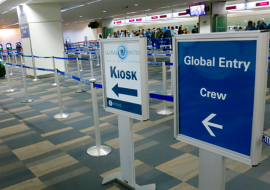Strategic Data: A vital Tool for DMOs Pursuing Sustainable Tourism

Strategic data for DMOs has never been more critical than now as the role of Destination Marketing Organisations (DMOs) has evolved, and sustainability now forms a core part of their strategy. As DMOs widen their remit to address the three dimensions of sustainability: social, environmental, and economic, the need for a more sophisticated approach to demonstrating their value and impact on tourism and destination management becomes clear.
Tourism is an invaluable tool for progress, providing an opportunity to exchange cultures and ideas and promote understanding between countries. However, to ensure buy-in from residents, DMOs have a vital role to play. This includes targeting the markets and segments most aligned with strategic destination goals — as well as engaging with policymakers on regulations, taxes, and legacy planning to combat potential negative effects of unbalanced tourism.
The environmental impact of tourism draws both global and local criticism, adding more pressure on DMOs to address this. Air travel is the Strategic data: a vital tool for DMOs pursuing sustainable tourism dominant contributor to travel-related CO2 footprint.
Detailed analysis is therefore important — allowing destinations to identify the most carbon-intensive traveller profiles and markets and optimise the mix of transport modes and visitor types to mitigate its impact. International initiatives such as the Glasgow declaration, and liaison with local stakeholders to promote “green” best practices and certifications further demonstrate DMOs’ commitment.
Economically, tourism is an important driver of wealth transfer into developing economies and small island states. While high-income countries account for 79% of global departures, a third (35%) of that travel is into low and middle-income countries.
This in turn creates much-needed employment opportunities — in 2022 alone twenty-two million new jobs were attributable to tourism, according to the World Travel & Tourism Council. DMOs are vital to ensuring balance in this context, managing tourism seasonality and refining distribution strategies to ensure that the economic benefits of tourism are sustainable.
While the work done by DMOs and related organisations to overcome these issues is praiseworthy, they continue to face two major challenges — demonstrating the tangible value of their current efforts, and accurately identifying the most impactful areas to address moving forward. Many DMOs have not yet managed to fully leverage the power of data to address these challenges — to transition from mere data reporting to strategic data application for informed analysis and decision-making.
Fortunately, the availability of highly accurate, granular and near real-time travel data, coupled with rapidly advancing technologies like artificial intelligence, can ease this transition. The ability to access the right data at the right moment, especially through natural language interfaces, empowers DMOs to improve data-driven decision-making.
DMOs increasingly view themselves as custodians of destinations, and to excel in this role, harnessing and interpreting data is crucial. This not only aids their primary functions but also provides an opportunity to reposition themselves as centres of expertise for travellers. Progressing from marketing and management to strategic leadership in this way is a vital step if DMOs are to ensure their continued influence and relevance in a rapidly changing tourism landscape.














